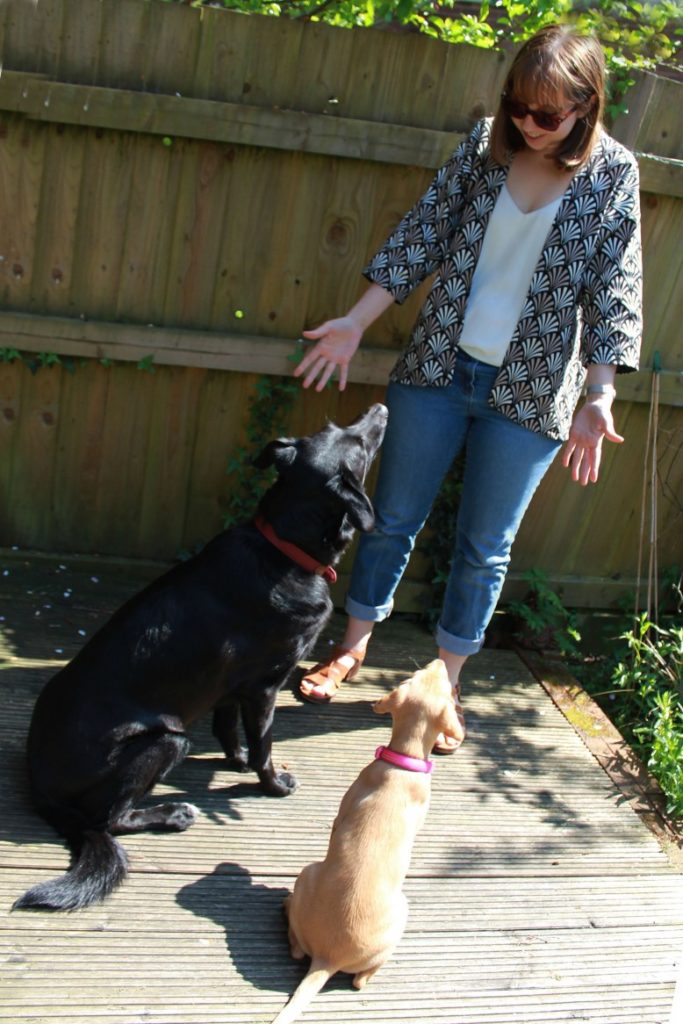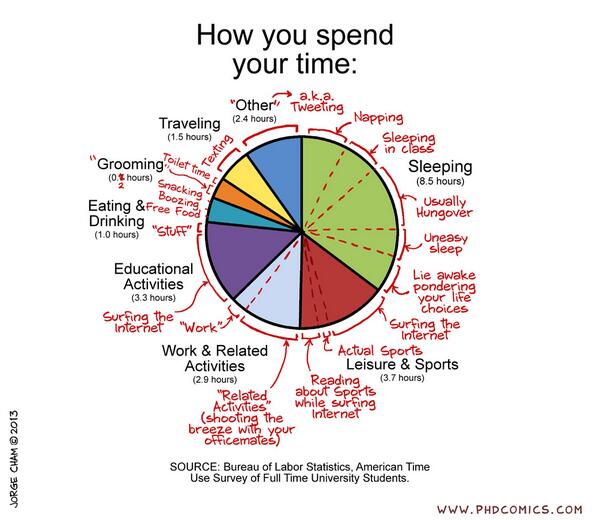Kelly Louise Preece is the Researcher Development Manager for PGRs in the Doctoral College. You’ll recognise her face from workshops, her voice from WEBINARs, and her jokes from the 90s. You can follow her on twitter for musings about Researcher Development and the PGR experience…interspersed with tweets about superheros and sewing.…
I have been busy over the last few weeks delivering our introductory training sessions – we’ve run these so far on how to be an effective researcher, future proofing yourself and your career and getting started with your literature review. No matter the focus of the course, myself and other presenters have inevitably been asked about good daily work habits for PGRs. After a session at our Penryn campus I tweeted a few top tips, and thought they were worth sharing in a blog post.
These top tips do, however, come with a couple of caveats. The first is that I am not perfect, and although I know I should be doing all of these things…I don’t always do them. I contributed to a Guardian article about study habits earlier this year, and we recognised in our team the irony of some of my advice as I have a tendency to overwork. I’m human, you’re human. If you think you have bad work habits, or you don’t always do the things you know you should, don’t beat yourself up about it.
The second is that these are 100% borrowed from other people and sources. I’ll try my best to appropriately credit the person or organisation that shared this wisdom with me.
- Treat your research degree like a job. Do 9-5 hours (or an 8 hour day at times that work for you) and protect your evenings and weekends as much as you can. You and your research will be better for it. Credit: Gemma Delafield, PGR in the Business School. You can find Gemma on twitter @G_Delafield.
- Dr. Kay Guccione’s mantra is #takebreaksmakebreakthroughs is all about making sure you have regular breaks, throughout your day, week, and academic year. Try to take a 5 minute break at least every hour. Go and get a cup of tea and speak to your colleagues. Lots of our departments have weekly coffee mornings – if yours doesn’t, why not set one up?
- Have lunch away from your desk. You are more likely to have those ‘aha’ moments when you are not focusing on the problem at hand. It’s how we process information.
- And always take your annual leave allowance – yes you have one!
- Take up a hobby or a regular self-care activity. They really help with work life balance. I sew and read copious amount of fiction, both of which keep my brain engaged but on something other than work. And sometimes if I need to de-stress at the end of the day, I just take my brothers dogs for a walk. Nature and fresh air can do you the world of good. As of course, can a puppy.

- If you don’t have immediate access to a puppy, BorrowMyDoggy is a great way to fill the animal void in your life, or if you have a car Charlotte our PGR and ECR Experience Officer recommends a relaxing walk around The Donkey Sanctuary in Sidmouth. If animals aren’t your thing, Biosciences PhD student, Rebecca Millard, was awarded a grant by the University of Exeter Annual Fund to set up weekly indoor hockey sessions to enhance mental wellbeing for Exeter’s postgraduate researcher community.
- We can’t be 100% focused and productive 100% of the time. It’s not how we are made. When making to do lists, list creative and mundane tasks – those that require our best thinking, and those that are glorified admin (or what Edward Mills @edward_mills termed Gradmin). That way, you gave tasks to do that move your project forward when you’re feeling highly focused and motivated, and also when you’re feeling a little bit sleepy after lunch. This is great advice I got from Vitae!
- Talk to your peers, learn from each other, create support networks and communities to get you out of the office or help you procrastinate and laugh on a Wednesday afternoon – just like Humanities Office C when they created PhD the Musical!

But most importantly, look after yourself. You can’t do your research if you don’t do you first.

